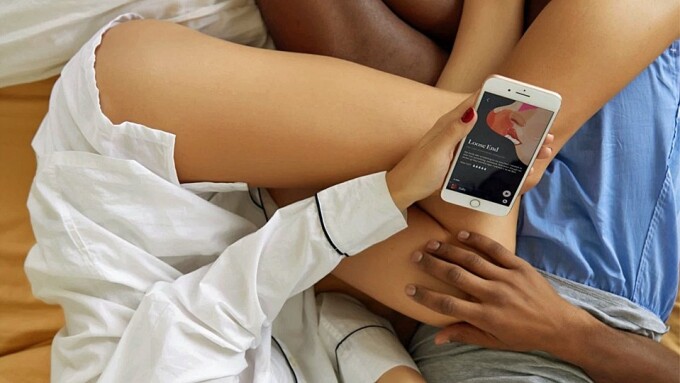LOS ANGELES — Erotic storytelling and audio entertainment are on the rise, and the mainstream press is taking notice.
Declaring that “a new wave of female-led businesses want to help women get off,” TechCrunch writer Kate Clark recently explored the growing world of erotic audio in context of the overall consumer trend towards more audio options — from audio books to podcasts, custom recordings and beyond.
Noting the recent venture capital investments in companies such as podcasting platforms Himalaya and WaitWhat, along with Spotify’s acquisition of podcast startups Anchor and Gimlet, Clark turned her attention to Dipsea, a San Francisco-based app for delivering short-form erotic audio stories.
Launched this past December, Clark reports that the female-founded Dipsea raised $5.5 million in investment capital, underscoring the widespread appeal of this growing market, which an XBIZ contributing writer has proclaimed as being music to consumer's ears.
“The founders have prioritized diversity of perspective, working with freelance writers of different backgrounds on various episodes, as well as consensuality, ensuring a form of verbal consent is worked into storylines,” Clark wrote, noting the founders’ belief that Dipsea “captures the zeitgeist of female empowerment.”
The subscription-based app is available for $8.99 per month or $48 per year.
“The subscription business model made me wince at first, but auditory erotica doesn’t exactly lend itself to an advertising business model, after all,” Clark confided, “and once I listened to a few of Dipsea’s short stories, I understood that the service is something many women would pay for.”
Clark credits Dipsea’s sensorial audio storytelling for setting the mood and sparking the listener’s imagination — something the company agrees with wholeheartedly.
“Audio is amazing because it’s imaginative; it requires you to paint a picture in your brain that’s very stimulating and it’s super intimate and very personal,” Dipsea CEO Gina Gutierrez told TechCrunch, noting her belief that the future of entertainment is sensory. “This felt like it could be a medium for women that hadn’t been harnessed or attempted before.”
The full article can be read here.







